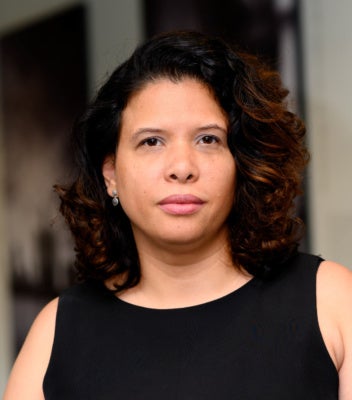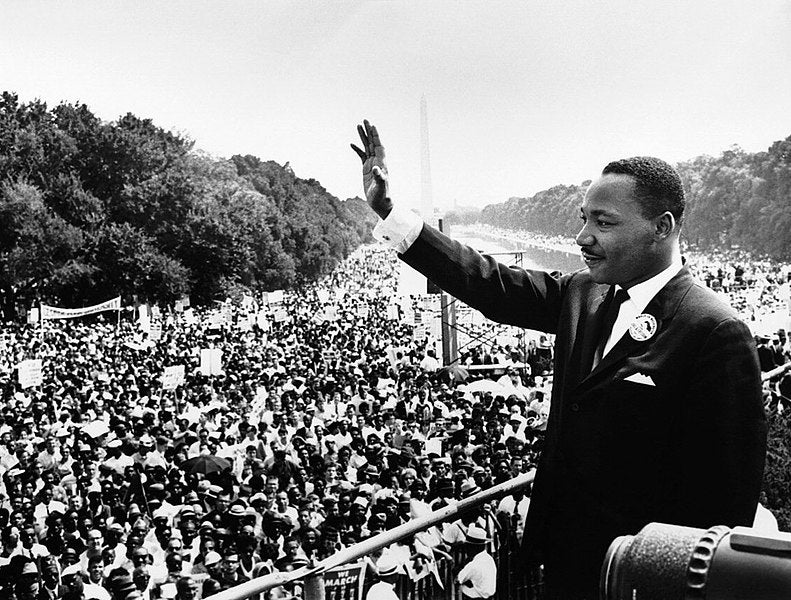Americans of color (AoC) like me are rightfully moving from the periphery of our society to center stage as creators and consumers. And we’re doing it as the rest of the country experiences a tectonic demographic shift.
According to the Pew Research Center, racial and ethnic students account for over 50 percent of K-12 public school students nationwide. The need for inclusion of AoC perspectives in our national dialogue is not just a moral imperative but rather a growth and survival strategy. With trust in the media at a low of 41%, serving and centering these future audiences is essential for the media to live up to its function as the Fourth Estate.
I started Lantigua Williams & Co. to bring overlooked stories to the fore and to create a pipeline of talent for equipping people from marginalized spaces to tell their stories. After 18 years in the media industry – writing, learning, and exploring stories of Americans of color – I decided to refocus my media skills and experience to creating work that reflects the changing audiences in this country.
I came to podcasting first as a listener, but soon realized its unique potential for shaping equity in the media. Using podcasts as the medium, LW&C teams have created shows to tell stories that too often are overlooked, obscured, or relegated as niche.
Our podcast vary from an investigative documentary series on criminal justice reform (70 Million), to interviews with successful Latinas leading in their industries (Latina to Latina), to providing tweens with an inclusive and expanded understanding of menstruation (Feeling My Flo). At the heart of each of these shows are producers, editors, and hosts dedicated to changing the narrative on topics that make them accessible and reflective of future media consumers.
More than 75 percent of newsroom employees are non-Hispanic white and 60% male, according to analysis of the 2012-2016 American Community Survey. A founding tenet of my company is the creation of a pipeline of talent into podcasting and digital audio, one that counters the demographic status quo. Our distributed teams around the country are 90% women of color. It has become routine, in calls and meetings, that folks express gratitude for being in a professional environment that looks the way it does, because they feel freed from the burden of representing their whole community. Having this freedom – to work from the strength of their ideas, without having to explain basics first – strengthens the quality and creativity of our work.
Each podcast project is created by a host, editor, and mixer – while I work to ensure they are well supported by additional team members and can develop new skills and learn different aspects of the production process if they’re interested. For me, expanding their professional portfolio goes hand in hand with inclusive creativity. In the last three years, multiple women of color have gone on to much larger podcasting companies after being on a LW&C team. As gratifying as this is, I often consider, what if there were 40 or 400 people doing the same thing? Imagine the impact.
Luckily, there are other people working to make the media industry catch up with the times. The International Women’s Media Foundation has the Gwen Ifill Mentorship Program to address the lack of inclusion and women in the newsroom, providing mentorship for women of color to move towards leadership positions in the field. The Online News Association created the Women’s Leadership Accelerator to coach women leading innovation in digital media. Gloria Feldt and Amy Litzenberger founded Take the Lead to achieve gender parity in leadership, across industries and at entry points with individuals, companies, and donors. Doug Mitchell, the founder of Next Generation Radio, has worked for twenty years to teach young people the skills to jumpstart in audio journalism, bringing people from marginalized communities into the industry.
These efforts all have mentoring at their core; to provide people who come from underrepresented groups the opportunity to build skills and bring their experiences into the creative center. Having mentors who can reflect back what is possible encourages young people coming up the ranks. Mentees need someone who tells them, ‘yes, I see you; yes, you’re smart enough; yes, you can do this.’ The more people and women of color that have the skills and opportunity to shape our American stories, the stronger our media and country can be.
 In honor of Women’s History Month, the Aspen Institute Latinos and Society Program is highlighting a Latina entrepreneur who uses her business and management style to mentor other Latinas in the podcasting industry. Juleyka Lantigua-Williams founded a production company, Lantigua Williams & Co. in 2017 after 18+ years in media (NPR, The Atlantic, Random House). Its mission is to support and amplify the work of creators from the margins in digital audio and film. Lantigua-Williams has made inclusion a central theme in her life’s work, while endeavoring to fully understand her own experiences as a hyphenated American.
In honor of Women’s History Month, the Aspen Institute Latinos and Society Program is highlighting a Latina entrepreneur who uses her business and management style to mentor other Latinas in the podcasting industry. Juleyka Lantigua-Williams founded a production company, Lantigua Williams & Co. in 2017 after 18+ years in media (NPR, The Atlantic, Random House). Its mission is to support and amplify the work of creators from the margins in digital audio and film. Lantigua-Williams has made inclusion a central theme in her life’s work, while endeavoring to fully understand her own experiences as a hyphenated American.

